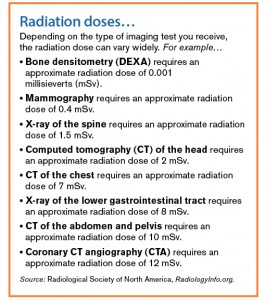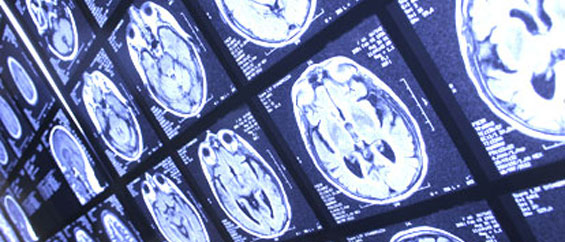Let’s say your doctor has advised you to get an X-ray or a CT scan. You’re likely to book the appointment without giving it much thought. But before you do so, it’s worth asking whether you really need the test.
A GROWING THREAT
In the 1980s, about 15% of a typical person’s lifetime exposure to radiation came from medical tests. Now these tests account for about half of one’s lifetime exposure. Why the increase? Doctors are now prescribing more imaging tests, and newer tests, such as computed tomography (CT) scans, produce more radiation than those available in the past.* This is true even though some CT scans now have lower radiation levels than when they were first introduced.
A DOUBLE-EDGED SWORD
There’s no question that imaging tests save lives. 
They can reveal hidden problems and have greatly improved doctors’ ability to diagnose and treat serious diseases. But the use of CT scans, to give just one example, has increased 20-fold in the last 25 years. Fortunately, the cancer risk from a single scan—or even a few scans—is negligible.
The real risk: Research shows that repeated CT scans over a lifetime could increase one’s risk of developing cancer by 2.7% to 12%. Cancers that have been linked to medical radiation include leukemia and malignancies of the breast, thyroid and bladder.
SHOULD YOU WORRY?
Everyone is exposed to small amounts of radiation. Cosmic rays, radon gas and radioactive minerals in the soil are among the most common sources. Typically, the amount of radiation from these “background” sources adds up to only about 3 millisieverts (mSv), a standard unit of measurement, a year—not enough to worry about.
However, imaging tests exponentially add to your lifetime exposure. Examples: About 1.5 mSv from a spinal X-ray…6 mSv from a pelvic CT scan…and about 20 mSv from a whole-body positron emission tomography (PET)/CT scan to detect cancer.
QUESTIONS TO ASK
Before agreeing to a test, ask your doctor why it’s needed and if the results will possibly change your diagnosis or treatment (if not, you don’t need the test). If an imaging test is crucial, you can ask whether there’s a radiation-free alternative, such as ultrasound, or whether a lower-radiation test is available—say, an X-ray instead of a CT scan. Also be sure that the medical facility where you will receive the imaging test has been accredited by the American College of Radiology (ACR). To check a facility’s accreditation status, go to the ACR.org.
Also helpful: Keep a log of any radiation-based tests that you get. You can refer to your radiation history whenever you and your doctor are considering a medical test that will expose you to radiation.
SUPPLEMENTS TO CONSIDER
Emerging evidence suggests that radioprotective supplements can help reduce the risks of radiation exposure. The research isn’t conclusive (and is primarily extrapolated from findings related to radiation from nuclear accidents), but lab studies have found that some supplements may help protect you from the dangers of radiation exposure, including that from medical tests.
Examples…
- Ginkgo extract. After the nuclear meltdown at Chernobyl, scientists studied a number of natural products to see what could help reduce radiation damage in first responders. They found that a ginkgo extract, known as Egb 761, reduced the damaging effects of radiation on chromosomes—and the benefits persisted for several months after workers stopped taking it. Other studies have found similar results.
My advice: Take Egb 761 for a week after having a CT scan or other imaging tests. It’s available at health-food stores and from online retailers such as Amazon.com. Typical dose: 120 mg daily. Good product: Tebonin.
Possible side effect: Egb 761 can increase bleeding when it’s combined with aspirin or other blood-thinning drugs, such as warfarin (Coumadin). Ask your doctor if it’s safe for you to use.
- Hesperidin. This flavonoid (a type of antioxidant) is found in fruits, especially citrus. It is also available as a dietary supplement.
An animal study published in The British Journal of Radiology found that hesperidin taken before radiation exposure reduced blood-cell damage. In human tests, results were similar—it reduced radiation-induced damage by about one-third.
My advice: Take 250 mg of hesperidin about one hour before testing. It’s unlikely to cause side effects.
*X-rays, computed tomography (CT) and positron emission tomography (PET) scans produce damaging radiation…ultrasounds and magnetic resonance imaging (MRI) scans do not.
Source: bottomlinehealth.com
